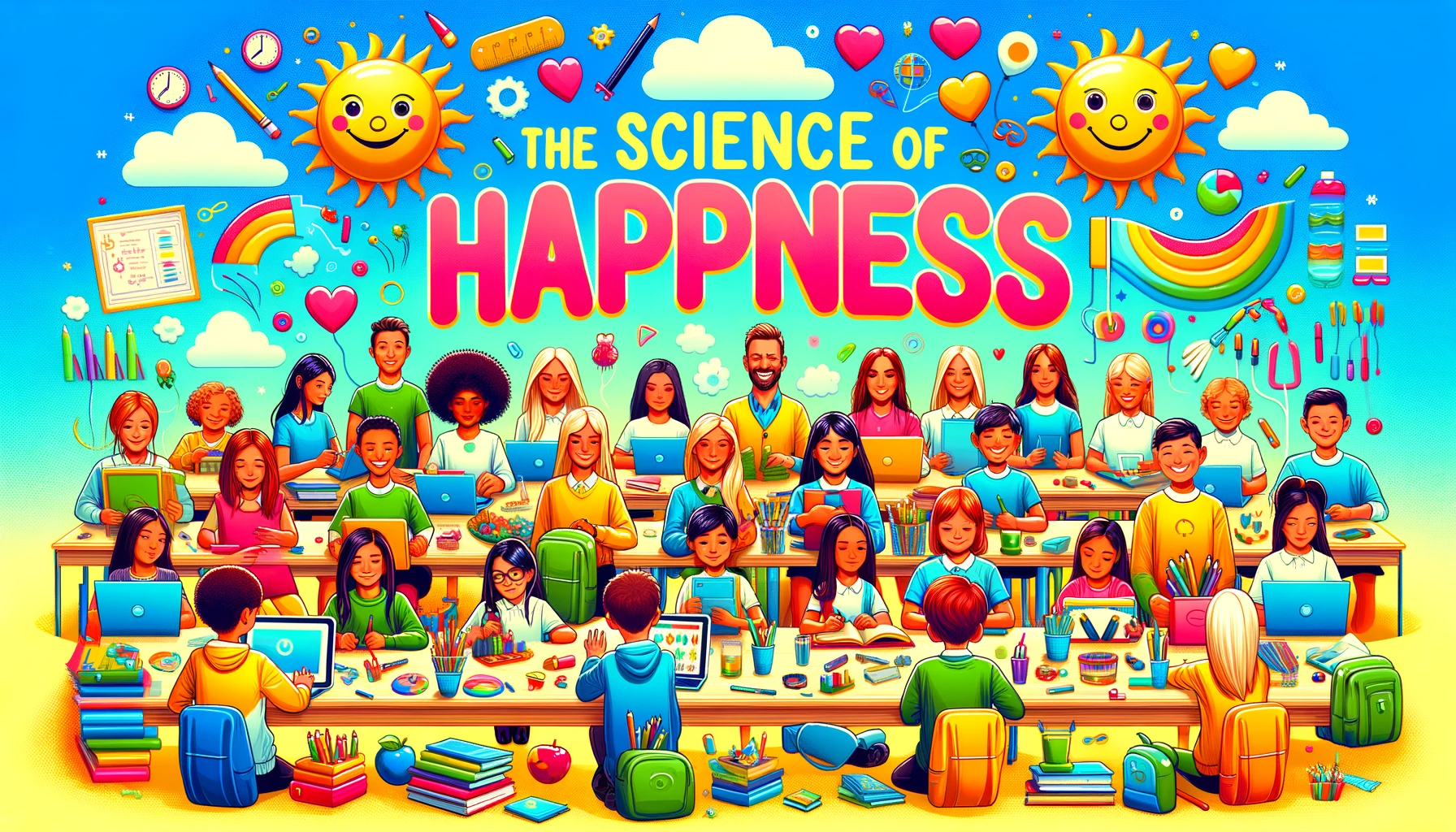
In the ever-evolving landscape of education and credentialing, the integration of blockchain technology stands out as a groundbreaking innovation. This article delves into the transformative impact of blockchain on diplomas, shedding light on its benefits, verification processes, and broader implications for the future of credentialing.
Blockchain technology brings a paradigm shift to the traditional diploma issuance and verification processes. The decentralized nature of blockchain ensures enhanced security, transparency, and immutability of academic records. In the context of education, this translates into more reliable and tamper-proof diplomas.
The advent of blockchain credentialing is a pivotal moment in the evolution of academic qualifications. Future credentials will be seamlessly stored on decentralized ledgers, providing a comprehensive and secure repository of an individual’s educational journey. This not only simplifies the verification process but also ensures the integrity of academic records.
Blockchain’s impact on verification processes is revolutionary. Verifying academic records becomes swift and foolproof, eliminating the need for lengthy manual checks. With blockchain verification, employers and academic institutions can instantly validate the authenticity of diplomas, ensuring a streamlined and efficient process.
Decentralized diplomas are a key facet of blockchain innovation. The decentralized nature ensures that academic records are not stored in a single, vulnerable location. This significantly enhances credential security, safeguarding against fraud and unauthorized alterations to academic records.
Decentralization and Security
Blockchain diplomas represent a seismic shift in the educational landscape, leveraging decentralized systems to fortify security measures. This section delves into the advantages of decentralization in protecting academic records and thwarting fraud, shedding light on how blockchain technology ensures the integrity and authenticity of digital diplomas.
Securing Academic Records with Blockchain Technology
Blockchain Diploma Benefits Unveiled
Blockchain diplomas, at their core, offer a myriad of benefits. Chief among them is the heightened security derived from the decentralized architecture. This decentralization ensures that academic records are not stored in a vulnerable central repository, mitigating the risk of unauthorized access and tampering.
How Blockchain Verifies Diplomas with Precision
Understanding how blockchain verifies diplomas is crucial in appreciating its role in bolstering security. The technology employs cryptographic principles to create an immutable and transparent ledger of academic achievements. This not only expedites the verification process but also guarantees the accuracy of the information being validated.
Decentralized Credential Advantages: A Paradigm Shift in Education
Advantages of Decentralized Education Records
Decentralization is not merely a security measure; it’s a paradigm shift in how education records are stored. By distributing data across a network, blockchain ensures that there’s no single point of failure. This decentralization not only enhances security but also improves the reliability of academic records.
Securing Academic Credentials with Blockchain: A Transformative Impact
Blockchain’s impact on academic credentials is transformative. It doesn’t just secure them; it revolutionizes how qualifications are perceived and authenticated. The decentralized nature of blockchain lends credibility to academic achievements, fostering trust among employers, institutions, and individuals.
Future of Digital Certification: Navigating Tomorrow’s Job Market
As we gaze into the future, blockchain credentials emerge as a linchpin in navigating the job market. The efficiency brought about by blockchain in education is unparalleled. Digital certifications, underpinned by blockchain technology, not only streamline the hiring process but also ensure that candidates possess qualifications aligned with the rapidly evolving demands of industries.
Blockchain Credentials for Employment: A Competitive Edge
In the future job market, blockchain credentials become a competitive edge. Employers are increasingly valuing the authenticity and efficiency that blockchain brings to the table. Embracing blockchain diplomas positions individuals as forward-thinking, tech-savvy candidates ready to contribute to the digital landscape.
Efficiency in Credentialing
Efficiency Unleashed: Streamlining Diploma Issuance
Blockchain technology has emerged as a game-changer in the realm of credentialing, particularly in the issuance of diplomas. The decentralized nature of blockchain expedites the entire process, ensuring a swift and reliable system for educational institutions.
Reducing Administrative Burdens: A Boon for Educational Institutions
The traditional diploma issuance process often involves a labyrinth of administrative tasks, leading to inefficiencies. With blockchain diplomas, these burdens are significantly reduced. Decentralization eliminates the need for intricate paperwork, expediting the issuance process and freeing up valuable resources for educational institutions.
Blockchain Diplomas: A Paradigm Shift in Verification
Swift and Foolproof: How Blockchain Verifies Diplomas
Verification is a crucial aspect of credentialing, and blockchain excels in this arena. The technology employs cryptographic principles to create an unalterable ledger of academic achievements. This not only ensures the integrity of the diplomas but also simplifies and accelerates the verification process for employers and other educational institutions.
Employer Ease: Streamlined Verification for a Fast-Paced Job Market
In today’s fast-paced job market, employers seek efficiency in the verification of academic credentials. Blockchain diplomas offer just that, providing a streamlined and foolproof method for employers to authenticate the qualifications of potential candidates. This efficiency translates into quicker and more confident hiring decisions.
Blockchain Diplomas: Future-Ready Credentials for Tomorrow’s Workforce
Digital Diplomas: Paving the Way for Future Credentials
Blockchain diplomas are not just about today; they are about the future of credentials. The transition from traditional paper diplomas to digital ones is a significant leap towards a more efficient and technologically advanced credentialing system. This shift aligns with the evolving needs of a digital-first world.
Blockchain Credentials for Employment: A Competitive Edge
In the competitive landscape of employment, blockchain credentials stand out as a valuable asset. The efficiency gained through blockchain technology not only benefits educational institutions but also provides job seekers with a competitive edge. Employers increasingly value candidates with verifiable and digitally secure qualifications.
Unlocking the Potential: Blockchain Diplomas in Numbers
Efficiency Metrics of Blockchain Diplomas
| Metric | Traditional Process | Blockchain Process |
| Issuance Time | Weeks | Days |
| Verification Time | Days | Minutes |
| Administrative Overheads | High | Low |
Transparent Verification Process
Unveiling the Legitimacy: Blockchain’s Transparent Verification
Blockchain-based diploma verification introduces a level of transparency that revolutionizes the authentication of academic credentials. Let’s delve into the step-by-step process, showcasing how blockchain ensures a legitimate, tamper-proof, and transparent verification method.
Immutable Record Creation
Blockchain Diplomas: A Foundation of Immutable Academic Records
The process begins with the creation of an immutable academic record on the blockchain. Each diploma is hashed and securely stored in a decentralized ledger. This cryptographic hashing ensures that the information is unalterable and tamper-proof, providing the foundation for a transparent verification process.
Decentralized Distribution of Records
Decentralization: Redefining the Distribution of Academic Records
Once the academic records are hashed and secured, blockchain diplomas embrace decentralization. Unlike traditional methods, where records are stored in centralized databases, blockchain distributes copies of the record across a network of nodes. This not only enhances security but also ensures redundancy, mitigating the risk of data loss.
Cryptographic Verification
Blockchain Verification: Leveraging Cryptographic Principles
The transparent nature of blockchain verification lies in its use of cryptographic principles. Each diploma is assigned a unique cryptographic key that serves as a digital signature. When verification is required, this key is used to authenticate the diploma. This cryptographic verification ensures the legitimacy of the academic credential without revealing sensitive information.
Instant Access to Verified Credentials
Efficiency Redefined: Instantaneous Verification with Blockchain
One of the standout features of blockchain-based verification is its speed. Traditional verification processes may take days or even weeks, causing delays in hiring or academic admissions. With blockchain diplomas, the process is near-instantaneous. Employers and educational institutions can access verified credentials with unprecedented speed, streamlining decision-making processes.
Tamper-Proof Verification Logs
Audit Trail Excellence: Ensuring the Integrity of Verification
Blockchain maintains a transparent and tamper-proof log of every verification instance. This audit trail provides a chronological record of who accessed the information and when. This transparency ensures accountability and further solidifies the legitimacy of blockchain-based diploma verification.
The Impact on Credentialing Ecosystem
Advantages of Transparent Blockchain Verification
| Advantages | Description |
| Tamper-Proof | Immutable records and cryptographic verification ensure the integrity of academic credentials. |
| Speedy Verification | Near-instantaneous access to verified credentials enhances efficiency in decision-making processes. |
| Decentralization Redundancy | Distribution of records across a decentralized network reduces the risk of data loss and enhances security. |
Technology Impact on Diploma Authenticity
Blockchain Diplomas: Elevating Diploma Authenticity through Technology
In the ever-evolving landscape of education, technology, specifically blockchain, has emerged as a transformative force, significantly impacting and improving diploma authenticity. Let’s delve into the technological nuances and how blockchain’s cryptographic features contribute to creating a secure and immutable record of academic achievements.
Blockchain’s Cryptographic Fortress
Cryptographic Assurance: The Foundation of Diploma Security
Blockchain’s cryptographic features form an impregnable fortress around academic credentials. Each diploma is encoded with a unique cryptographic hash, creating an indelible link between the document and its digital signature. This cryptographic assurance is the cornerstone of diploma security, making it resistant to tampering and unauthorized alterations.
Creating a Secure and Immutable Record
Immutable Records: Safeguarding Academic Achievements
The impact of technology on diploma authenticity is vividly evident in the concept of immutable records. Blockchain, as a decentralized ledger, ensures that once academic achievements are recorded, they become part of an unalterable chain. This not only secures the legitimacy of the diploma but also establishes an unassailable timeline of academic accomplishments.
Instilling Confidence in Credentials
Confidence Through Transparency: Blockchain Diplomas Unveiled
One of the striking benefits of technology in diploma authenticity is the transparency afforded by blockchain. Individuals, employers, and educational institutions can easily verify the authenticity of a diploma through the decentralized and open nature of blockchain. This transparency instils confidence in the presented credentials, eradicating doubts about their legitimacy.
Blockchain Diplomas: The Technology Impact in Numbers
Impact Metrics of Blockchain on Diploma Authenticity
| Metric | Description |
| Tamper-Proof | Cryptographic features ensure diplomas are resistant to tampering, providing an added layer of security. |
| Transparency | Blockchain’s decentralized nature offers transparent verification, instilling confidence in credentials. |
| Immutable Records | Academic achievements become part of an unalterable chain, creating a secure and permanent record. |
Conclusion
Blockchain diplomas have redefined the landscape of credentialing, bringing forth a revolution in how academic achievements are recorded, verified, and trusted. Let’s delve into the key aspects that make blockchain diplomas a game-changer.
Blockchain’s cryptographic features create a secure and tamper-proof verification process. Each diploma is equipped with a unique digital signature, making it virtually impossible for unauthorized alterations. This not only enhances the security of academic records but also instils trust in the authenticity of presented credentials.
Blockchain diplomas significantly enhance the efficiency of credentialing processes. The decentralized nature of blockchain allows for swift verification, reducing the time and administrative burden for both educational institutions and employers. This efficiency is a crucial factor in adapting to the fast-paced demands of the modern credentialing landscape.
FAQs
What are blockchain diplomas?
Blockchain diplomas are digital credentials stored on a blockchain, utilizing cryptographic features for security. They provide a tamper-proof and transparent record of academic achievements, revolutionizing traditional paper-based diplomas.
How does blockchain verify diplomas?
Blockchain verifies diplomas through cryptographic principles. Each diploma has a unique digital signature, creating an immutable record. Employing decentralized networks, ensures swift and secure verification, expediting the process and enhancing authenticity.
Are blockchain credentials secure?
Yes, blockchain credentials are highly secure. The cryptographic features and decentralized nature of blockchain make tampering nearly impossible. Each credential is safeguarded by a unique digital signature, ensuring the security and integrity of academic records.
What is the impact of blockchain on education?
Blockchain has a profound impact on education by enhancing security, streamlining verification processes, and providing future-ready credentials. It revolutionizes how academic achievements are recorded, verified, and trusted.
How to use blockchain for academic records?
Blockchain is used for academic records by creating secure, decentralized, and transparent ledgers. Institutions can issue and verify records efficiently, reducing administrative burdens and ensuring the integrity of academic achievements.
Can blockchain diplomas be trusted?
Yes, blockchain diplomas can be trusted. The decentralized and tamper-proof nature of blockchain ensures the authenticity and reliability of academic credentials, instilling confidence in their legitimacy.
Are digital diplomas the future?
Yes, digital diplomas are the future. They offer efficiency, transparency, and security, aligning with the digital transformation of education and employment processes.
How does decentralized credentialing work?
Decentralized credentialing distributes academic records across a network, eliminating a central point of vulnerability. This ensures security, accessibility, and efficiency in the verification process.
What are the benefits of blockchain in education?
The benefits of blockchain in education include enhanced security, streamlined verification, decentralized storage, and future-ready credentials. It revolutionizes traditional education processes.
How to verify blockchain certificates?
Blockchain certificates can be verified by using the unique digital signature associated with each credential. This cryptographic verification ensures the authenticity of the certificate.
Do employers accept blockchain credentials?
Yes, employers increasingly accept blockchain credentials. The efficiency and security offered by blockchain technology make these credentials valuable in the job market.
How does blockchain improve diploma authenticity?
Blockchain improves diploma authenticity through cryptographic features, creating secure and tamper-proof records. The decentralized nature ensures the legitimacy of academic achievements.
Are there accredited blockchain degrees?
Yes, there are accredited blockchain degrees offered by reputable institutions. These degrees focus on the principles and applications of blockchain technology in various fields.
What is the future of digital certification?
The future of digital certification is bright, with blockchain playing a pivotal role. It offers efficiency, security, and transparency, shaping the way credentials are issued, verified, and trusted.
How does blockchain enhance credential security?
Blockchain enhances credential security through cryptographic features and decentralized storage. This makes it resistant to tampering and provides a transparent and secure verification process.






